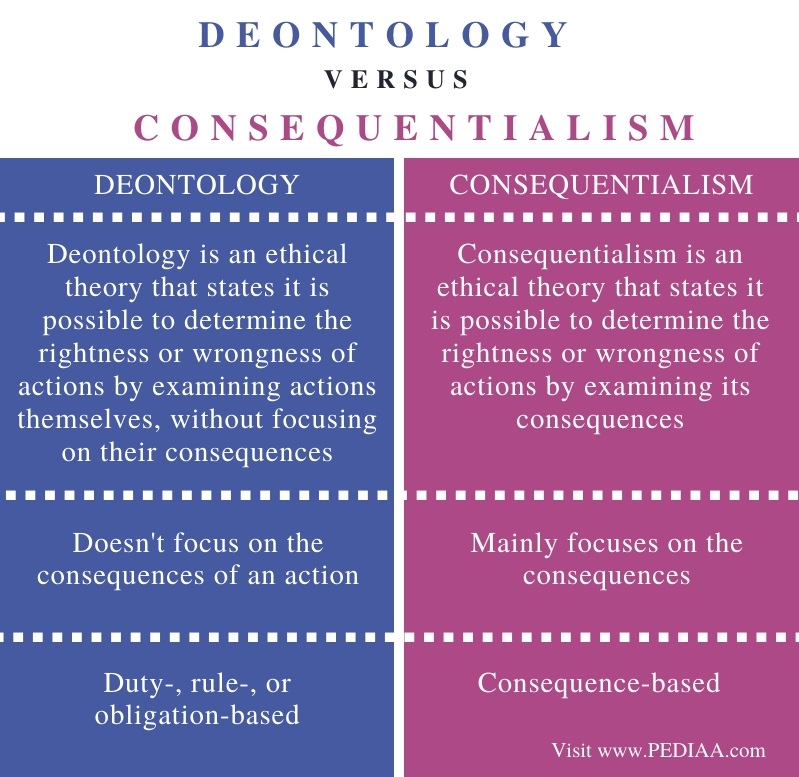
Definition of Non Consequentialism in Ethics DouglasaxMcgee
Unlike consequentialism, which judges actions by their results, deontology doesn't require weighing the costs and benefits of a situation. This avoids subjectivity and uncertainty because you only have to follow set rules. Despite its strengths, rigidly following deontology can produce results that many people find unacceptable.

10 Consequentialism Examples (2023) (2023)
Virtue Ethics Consequentialism, deontology, and virtue ethics are moral theories that evaluate morality on the basis of different factors. This Buzzle post explains the consequentialism vs. deontology vs. virtue ethics comparison. Subtle Distinction

PPT What is Ethics PowerPoint Presentation, free download ID437065
Consequentialism First published Tue May 20, 2003; substantive revision Wed Oct 4, 2023 Consequentialism, as its name suggests, is simply the view that normative properties depend only on consequences.

Normative Ethical Theories Deontology, Consequentialism, & Virtue Ethics BIOETHICS YouTube
In this lecture, Professor Adrian Moore (University of Oxford) explores the difference between the three main strands of moral philosophy -consequentialism,.
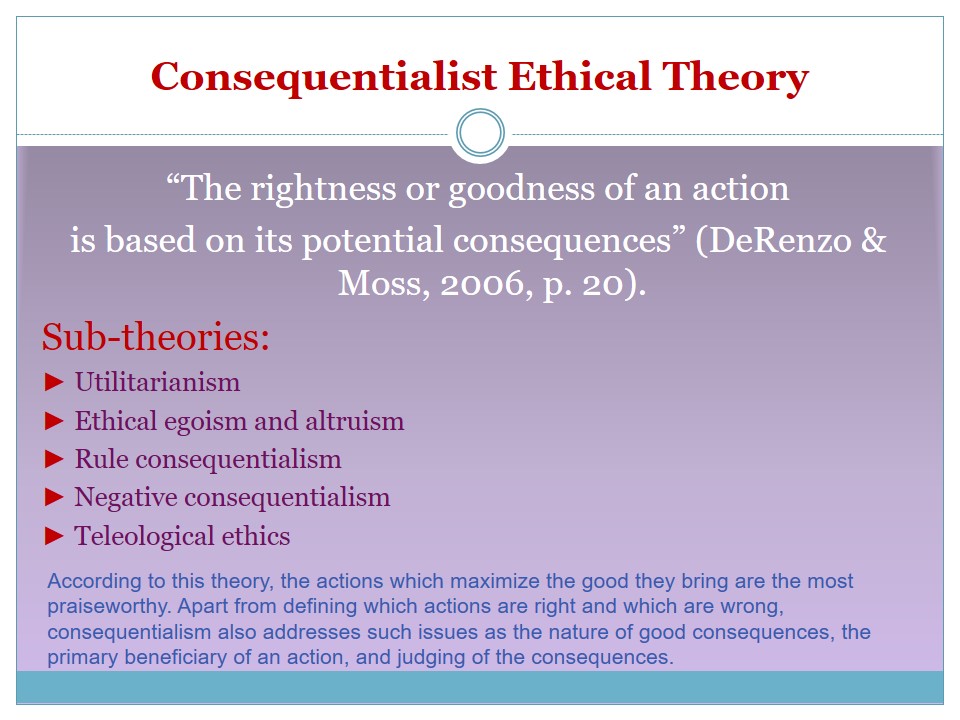
Deontological Ethics Example
VIRTUE ETHICS, DEONTOLOGY, AND CONSEQUENTIALISM 2 1. Introduction In the field of ethics, various theories have attempted to set themselves apart as the "right" one, i.e., as superior to the rest.
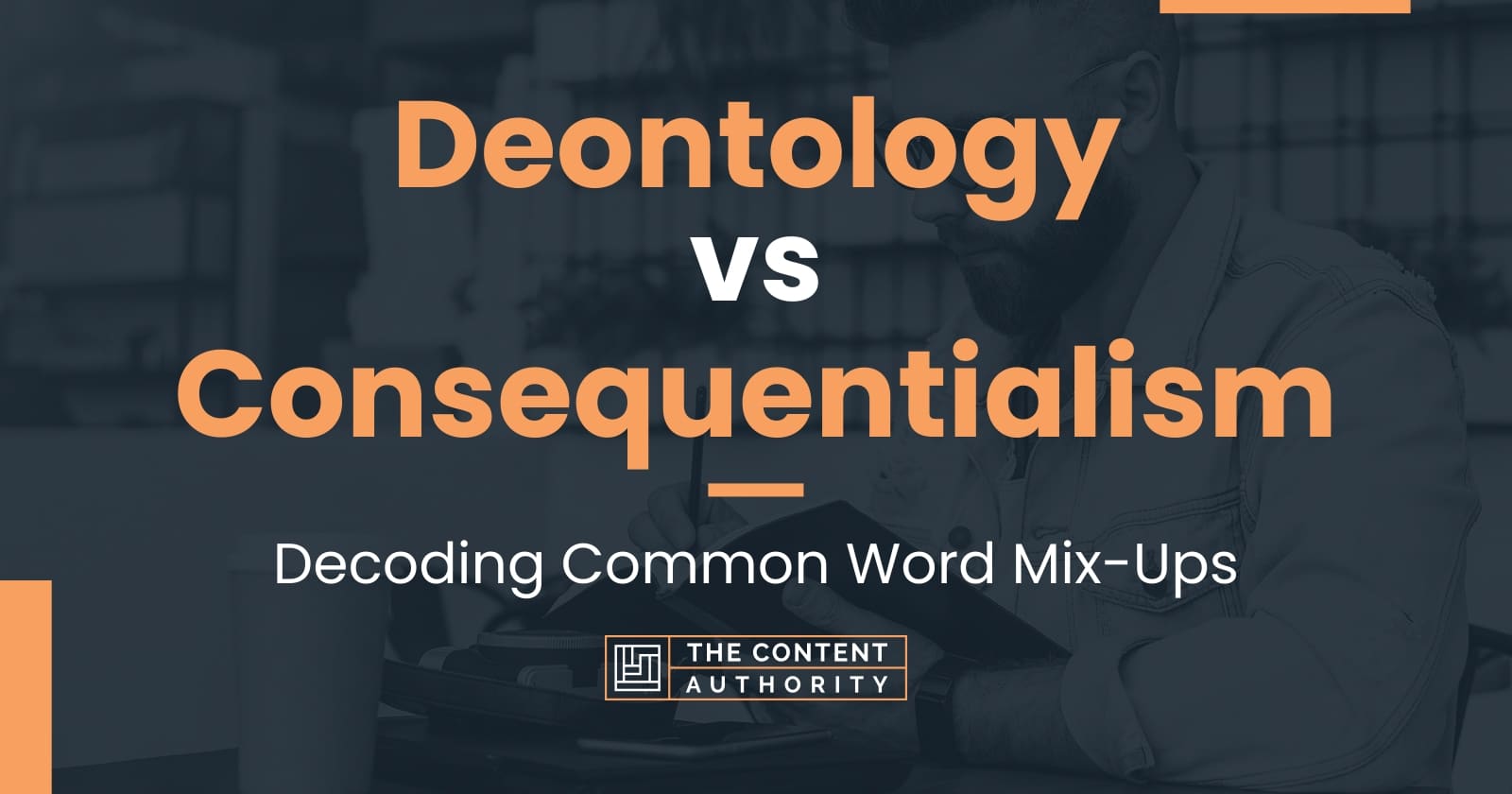
Deontology vs Consequentialism Decoding Common Word MixUps
Consequentialism is a broad school of ethical theory. There are many different forms of consequentialism depending on how one values outcomes. For example, welfare consequentialism, or welfarism, maintains that all that matters or is good is welfare, or well-being. The right act is the act which maximises well-being.

Deontological Consequential Ethics Consider these quotes The remarkable
The answer is not so simple. Both deontology and consequentialism have their strengths and weaknesses, and each can be applied in different situations. In the following sections, we will take a closer look at each theory and examine its key features. Define Deontology
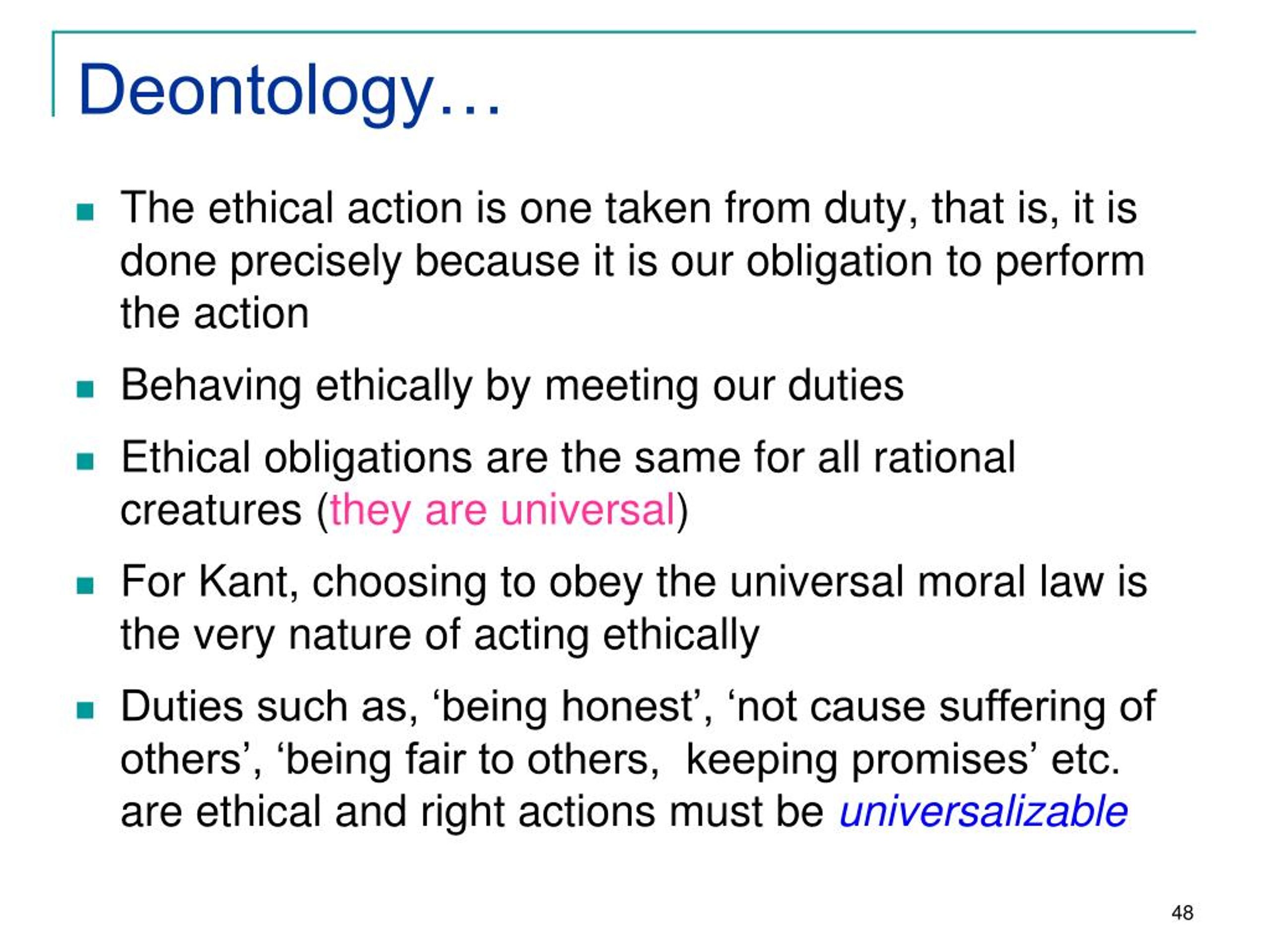
PPT introduction to health Ethics PowerPoint Presentation, free download ID7501682
Deontology, consequentialism, act choices, and framing effects We manipulated framing (positive vs. negative) and act certainty (act with certain vs. risky outcomes). Deontological versus.
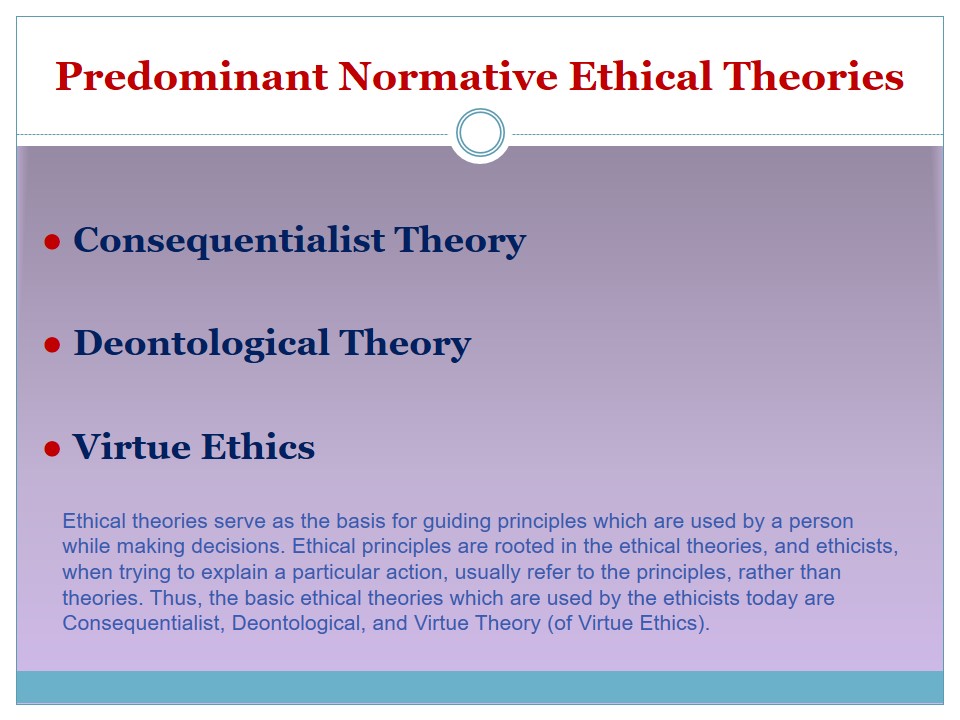
Consequentialist, Deontological, and Virtue Ethics Ethical Theories 1692 Words Presentation
Virtue Ethics. Virtue ethics is currently one of three major approaches in normative ethics. It may, initially, be identified as the one that emphasizes the virtues, or moral character, in contrast to the approach that emphasizes duties or rules (deontology) or that emphasizes the consequences of actions (consequentialism).
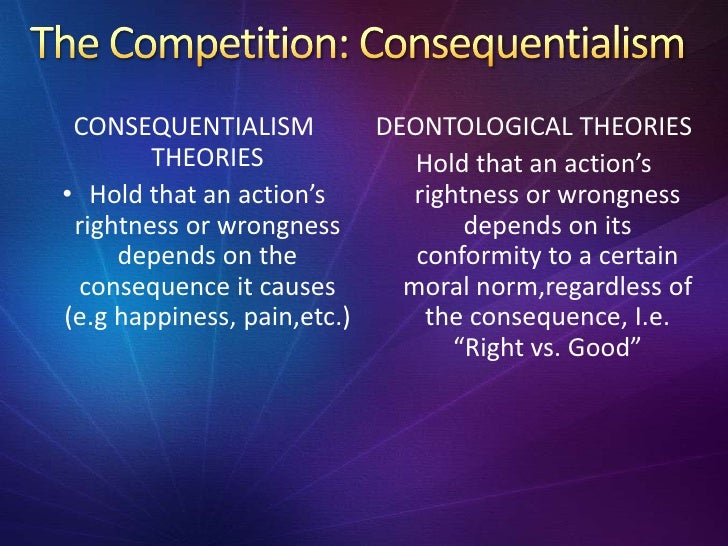
Deontological ethics 3.2
Deontology's Foil: Consequentialism Because deontological theories are best understood in contrast to consequentialist ones, a brief look at consequentialism and a survey of the problems with it that motivate its deontological opponents, provides a helpful prelude to taking up deontological theories themselves.

A comparison consequentialism vs deontology vs virtue ethics Artofit
However, consequentialism focuses on judging the moral worth of the results of the actions and deontological ethics focuses on judging the actions themselves. Consequentialism focuses on the consequences or results of an action.

Definition Of Consequentialism In Ethics definitonjulb
Consequentialism is usually contrasted with deontological ethics (or deontology ): deontology, in which rules and moral duty are central, derives the rightness or wrongness of one's conduct from the character of the behaviour itself, rather than the outcomes of the conduct.
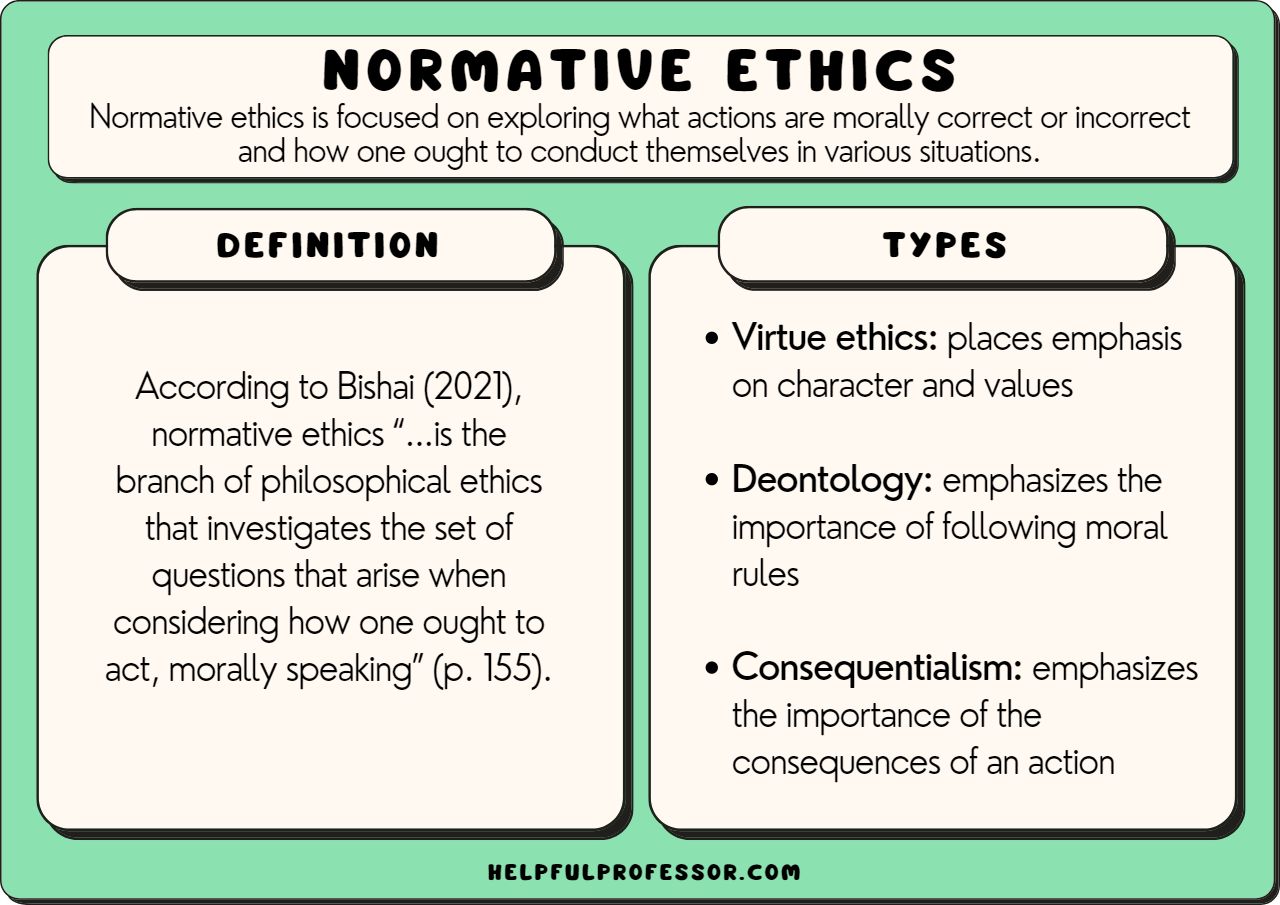
Normative Ethics Theories (with Examples) (2023)
07 June 2018 Annotate Cite Permissions Share Abstract This chapter advances two main claims. First, that the distinction between consequentialism and deontology, although widely adopted, is illusory and only serves to obscure some of the genuine disputes underlying central debates in distributive justice.

PHI 204 Ethical Issues in Health Care Consequentialism, Deontology
Deontology vs. Consequentialism By Kenneth Ortiz Posted March 5, 2023 In Articles, Ethics, Morality, Philosophy In 2006, the show Dexter aired. It was a hit. I've never watched the show, but several of my friends loved it. The show paves the way for an interesting ethical debate.

Ethics Deontology Versus Consequentialism Lesson 1 Kant YouTube
The main difference between deontology and consequentialism is that deontology focuses on the rightness or wrongness of actions themselves. Whereas, consequentialism focuses on the consequences of the action. Deontology and consequentialism are two contrasting, normative ethical theories that determine the morality of an action.
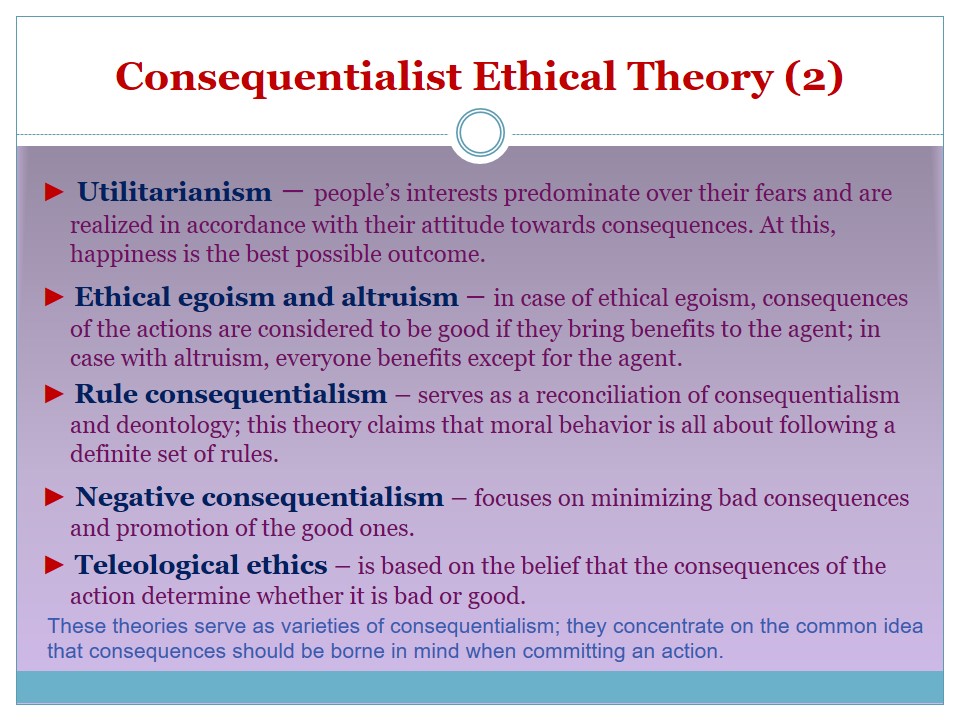
similarities between deontology and consequentialism
Broadly speaking, consequentialism judges an action according to the consequences of the action. While a deontological judgement asks whether the action follows a given rule. 1) A main proponent of a deontological rule is Immanuel Kant. His fundamental rule is the categorical imperative. It states: